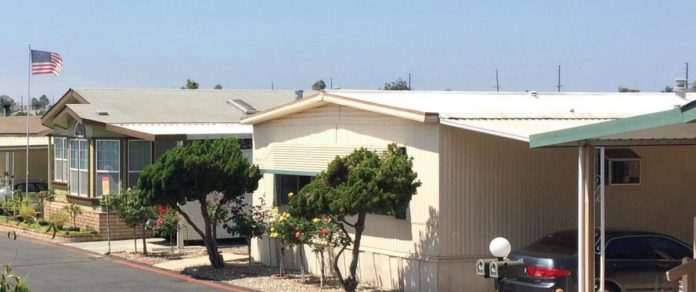Augusta Communities is Unique Among Industry Nonprofits
Manufactured home communities have been a hot commodity for owners and investors for years now, and with much of the consolidation having occurred it’s often said to be a difficult market for buyers. There are too few communities to choose from, prices are high, and you’re competing against a lot of other potential buyers.
For Suzanne Taylor and her team at Augusta Communities, a 501(c) 3 affordable housing organization, the challenge is all the more real.
“Augusta is competing with for-profit investors who have larger organizations, plenty of access to capital and offer a very quick close. For-profits can take on more investment risk. The motives of most for-profit owners are different than ours. Our central goal is to maintain housing affordability for our residents and to improve their community,” Taylor said. “In the nonprofit model there’s no distribution of cash flow, it goes back into our efforts to build the community and fund future acquisitions.”
The nonprofit model was born out of thoughtful negotiations with Southern California municipalities more than 20 years ago at a time when residents were reaching out to their city officials for assistance in maintaining housing affordability. Since that time, Augusta has acquired six communities of its own and manages parks for local municipalities.
“Augusta’s nonprofit model was developed as a way to work with municipalities to fund these acquisitions because they can issue tax-exempt bonds with favorable interest rates and 100% financing or more,” Taylor said. “That allowed us to be more mission-driven in general, putting the residents’ needs first in all of our communities.
Augusta’s financing options have expanded beyond bond financing. In early summer it closed on a $15 million Duty-to-Serve Fannie Mae loan.
The nonprofit model allows Taylor and her all-women-led management team — Accounting and Finance Director Chrissy Summerville, Business Development Director Erica Taylor, and Director of Community Services Vanessa Hatch — to make common area improvements, upgrade utilities, renovate or replace homes, and offer a robust resident services program.
Resident programs within the communities include…
- Financial assistance
- Vaccination clinics
- Summer camps
- College scholarships
- Free tax prep
- Homework clubs
- English language programs
- Health fairs
- Good neighbor awards, and more
Erica Taylor, Suzanne’s daughter, calls the effort a “full-time community improvement project”.
“It is important to have a relationship with residents and continue to work to preserve manufactured home parks as affordable housing,” Erica Taylor said. “We always are working hard to make our communities a better place to call home. Our residents really like living here and we want to give as much back as we can. We meet and confer with our residents and reinvest project revenues back into our communities.”
Augusta’s model differs from the resident-owned community model. In a resident-owned community, the park is operated by a constituency of residents who serve on a governing board that oversees the operation from a legal and financial perspective, and can advise on mission-driven operations. Augusta is overseen by a volunteer board and managed by third-party professional management groups that specialize in manufactured housing.
“It’s so technical, how you manage your property, with rents, human resources, how you participate in government-sponsored improvement projects. It’s hard,” Suzanne Taylor said. “Our residents are pleased that they don’t have to manage each others’ space. They rely on our team and our board.”
Augusta must comply with government-imposed financial and affordability regulations that guaranty long-term housing affordability. These regulations require Augusta Communities to maintain at a minimum 20% of each of its parks for low-income housing, but overlaying agreements bump that requirement much higher to nearly 90@ in some projects.
‘Gateway to the Sequoias’
A somewhat recent acquisition for Augusta Communities has been rebranded from Mooney Grove to Rancho Robles, a community in Visalia, about 45 miles south of Fresno.
“It’s a beautiful place with all of the services that make a great city,” Erica Taylor said. “Everyone in the community is really happy, and proud of what we’ve been able to do there, and we are too.
“We have renovated the clubhouse, moved the office from clubhouse to a new model home, gated the entrances and added solar street lighting, installed new signage with its new name and branding, renovated older homes, installed new home, applied for the gas conversion program, and have begun offering resident service programs,” Erica Taylor said.
The replacement of homes has been aided by partnerships with other nonprofits, a blessing for an organization that lacks access to capital many for-profit organizations are finding from Wall Street and elsewhere.
She said even with all of the recent changes at Rancho Robles, there are 30 cleared and ready sites awaiting new homes. Those new homes will be paid for by capital made available by the refinancing of other communities, which is one way the nonprofit housing organization expands its efforts.
“We help individuals solve problems,” Suzanne Taylor said. “We work very hard to have strong relationships with our residents as well as our investors and our regulatory and funding partners.
All of Augusta’s communities are in California, but the organization may move beyond the state in the coming months and years.
“We don’t have any real geographic limitations from here,” Erica Taylor said. “Ideally, we’re looking to go from Texas west.”










